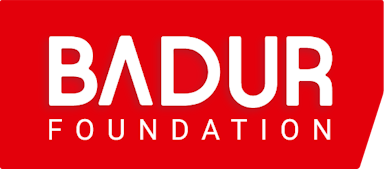The Creative Partnership Programme (CPP) – where teachers and artists teach together – encourages students’ creativity and critical thinking, resulting in a long-term positive impact on their academic performance. Until 2022, the implementation of CPP had been coordinated by T-Tudok Plc in Hungary. The team entered the Resilience Programme with the goal of creating a new organisation for more targeted and sustainable development, coordination and promotion of CPP, and other educational programmes.
CPP was first introduced in the UK in 2011 and has since spread to more than 14 countries. The methodology of the programme is the “well-functioning classroom” model, in which students begin to take risks and make independent decisions based on free choices. Through CPP, motivation becomes internal, self-confidence increases, the feeling of belonging to a community and flexible thinking become stronger. It works particularly well for children who have difficulty fitting into curriculum-focused public education – including disadvantaged students or students with special educational needs. In addition, both teachers and parents benefit from the programme as they learn different ways of teaching and engaging.
In Hungary, the CPP was first introduced in 2013-14 in Budai-Városkapu Primary School in Pécs. Until 2022, the programme was implemented in 18 schools across 9 cities, and it involved more than 500 students and 90 teachers. The Foundation came into contact with the programme in 2020, when a new pilot programme began in a suburban area of Budapest, in Sebestyén Primary School. The work completed in the first semester was funded from the school’s own resources. The Foundation provided co-funding for the second semester and supported the team while it secured funding for the subsequent years.
After years of experience, the CPP and its methodology stood on a solid ground. A core professional team was established and whilst the programme had proven social impact, the circle of partner institutions could be expanded further.
In order to organise, develop and promote the CPP and other programmes in a more effective way, the team applied and successfully participated in the Resilience Programme. The establishment of a new coordinating organisation, separate from T-Tudok Plc. – Creative Learning and Education Foundation (CLEF) – came into focus.
After a series of workshops covering all important aspects and areas of organisational operation, the team prepared its development and implementation plan, which was supported by the Trustees of the Badur Foundation.
The team identified the following professional goals: the expansion of partner institutions and the involvement of additional age groups (e.g. kindergarteners). The 4 pillars of its methodology were also to be strengthened; these are the Creative Partnership Programme (CPP), the Art of Learning Programme, the Training Portfolio, and the Art Pedagogy.
Regarding the strengthening of the organisation itself, capacity expansion and the development of a communication and fundraising strategy became central to the development plan.
In 2022, the Creative Learning and Education Foundation (CLEF) was established. The team received professional support in the areas of communication, fundraising and organisational management. They launched a new website, which serves to promote CLEF’s programmes and provides up-to-date information about them. As part of the expansion activities, the CPP was introduced in a new school where students of different backgrounds learn together.
By the end of the Resilience Programme (December 2024), CLEF had made significant progress, building a stable and dedicated team, a strong brand and communication strategy, a more diversified funding base, and a track record of successful projects and partnerships. The Foundation has proudly supported CLEF on this journey.



